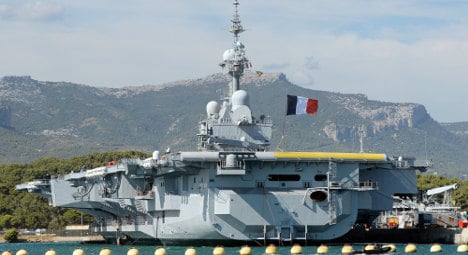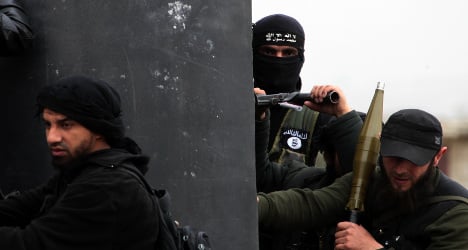The French parliament will hold an emergency session to debate the Syria crisis on September 4, minister Alain Vidalies said on Wednesday.
The announced debate comes as France and its allies weigh a potential military intervention in Syria following an alleged chemical weapons attack last week in the Damascus suburbs that the West blames on the regime.
"There will be a special debate in the (lower house) National Assembly and in the (upper house) Senate," said Vidalies, who is in charge of relations between the government and parliament.
It is as yet unclear whether a military operation will take place over last Wednesday's alleged attack – which Syria's opposition says killed more than 1,300 people – and if it does, when it will happen.
But under French law, a one-off military intervention does not need parliamentary approval.
French President François Hollande gave a defiant speech on Tuesday warning the Syrian regime of Bashar al-Assad that France was "ready to punish" those responsible for the chemical weapons attack.
Hollande further warned that the Syrian civil war posed "a threat to world peace."
Stressing a "responsibility to protect civilians," Hollande also said that "chemical massacre cannot remain without a response from France."
To that end, he declared: "I have decided to increase our military support to the Syrian National Coalition," the country's main opposition body
Hollande also announced he would be meeting with his defence chiefs on Wednesday, in order to devise a strategy.
Earlier in the day a source from within his administration had promised France would not "shirk its responsibilities" in Syria.
The source said the "massive use" of chemical weapons is "unacceptable", adding that there was no doubt that President Bashar al-Assad's regime had used them in a deadly attack last week on a Damascus suburb.
Tensions have ratcheted up dramatically in recent days with Washington warning Damascus that it could face action over the alleged chemical weapons strikes in which hundreds are said to have been killed.
US Pentagon chief Chuck Hagel has said American forces are in place and "ready to go" if ordered to punish the regime of Bashar al-Assad.
Britain, meanwhile, has called back its lawmakers from their summer holidays to vote on a response to the Syria crisis.



 Please whitelist us to continue reading.
Please whitelist us to continue reading.
Member comments